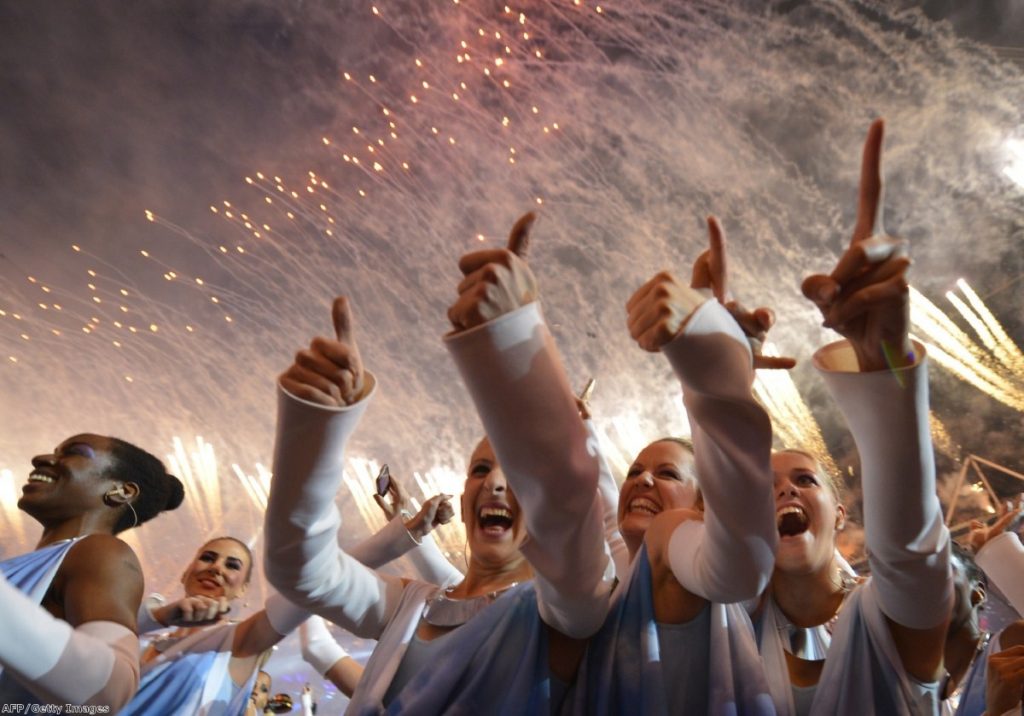London 2012: Britain prepares for the greatest hangover in history
Britain was straining under a collective national hangover today, after the closing ceremony of the Olympic Games brought an end to a remarkable two weeks for the UK.
There were mixed reviews of yesterday's glittering event, in which Take That and George Michael took part in a pop-heavy celebration of British music. Viewers were also treated to the sight of Boris Johnson and David Cameron dancing badly to the Spice Girls.
Cameron spoke to US president Barack Obama last night on the phone, when he congratulated his country on coming top of the medal table.
"The president praised the organisation of the Games and the amazing performance of Team GB athletes," a spokesperson said.


"And he thanked the prime minister for the hospitality the UK had shown to the first lady at the start of the Games and the US team ever since."
Cameron announced he would issue members of the armed forces and police involved in the Games with a commemorative coin, after they picked up the slack for the failure of private firm G4S to abide by its contract.
"I am delighted to be giving a commemorative coin to everyone who helped to deliver the biggest peacetime security operation this country has ever seen," he said.
Seb Coe, who has been the driving force behind the remarkably well-received Games, accepted an offer from the prime minister to become 'legacy ambassador' for the Games. The position has not been fully fleshed out yet, but it involves harnessing the success of the Games for British businesses.
"Capitalising on everything we've witnessed in the last fortnight and in the last seven years is going to be important," he said.
"The prime minister asked if I would help in that process and I said, of course. The role, we will work that out. It's very important we able to leverage every ounce, economic, social and sporting benefit."
Former prime minister Tony Blair, who presided over the successful British bid for the Games, said they were "immensely hopeful for the country"
He told the Today programme: "I think the country actually expressed its values in a fantastic way throughout the whole of the Olympics.
"We were warm, generous-minded, a sense of fair play, great British humour.
"Right from the time we won the bid, we were anxious to portray London and Britain as it is today, and it is a place of many different cultures and faiths.
"Which is not to say we aren't proud of our Christian heritage, but I'm also proud when I see people who come from abroad, like Mo Farrah, who win two Olympic golds and serve as a great example to our country."
There were depressing signs that Britain was already returning to business as usual this morning, not least in Damian Green's attack on union leaders.
The goodwill of the last fortnight was becoming harder to remember as the immigration minister urged jubilant Brits not to forget threats from the PCS union to strike ahead of the event, in what read like a 'back to business as usual' political attack.
"The euphoria of the last fortnight should not mean we forget the attempt by Mark Serwotka and the other PCS leaders to call a strike on the day before the Games started, designed to cause maximum chaos at Heathrow as the world arrived," he wrote on ConservativeHome.
Economists are unsure how the Games will affect the UK economically. While there is likely to have been a knock from the exodus of locals and tourists from central London, the long-term business benefits are likely to be substantial, albeit harder to quantify.
What is without question is the seismic change in the national mood since the Games started, even if it is harder to put a price on.

